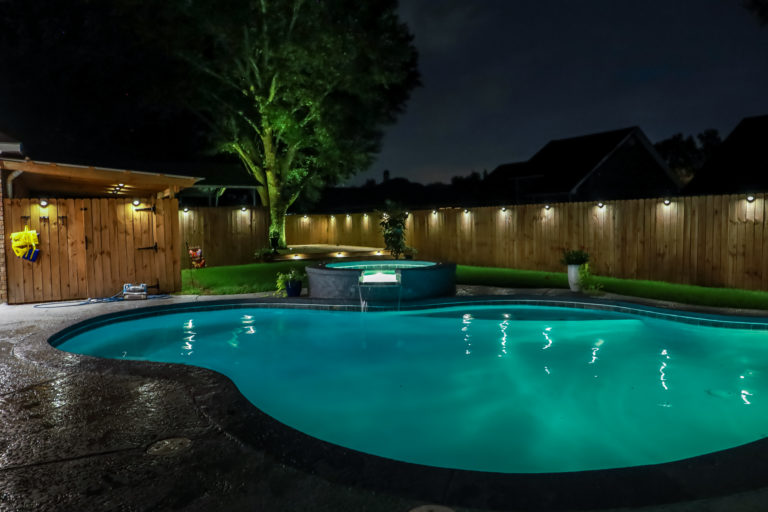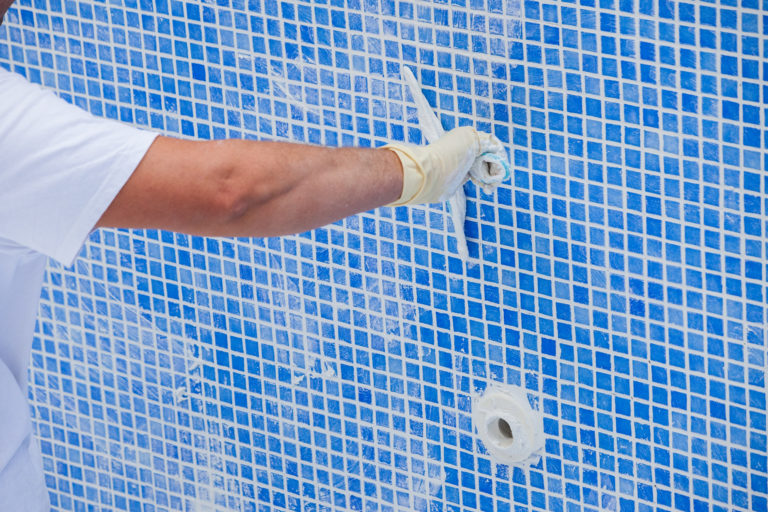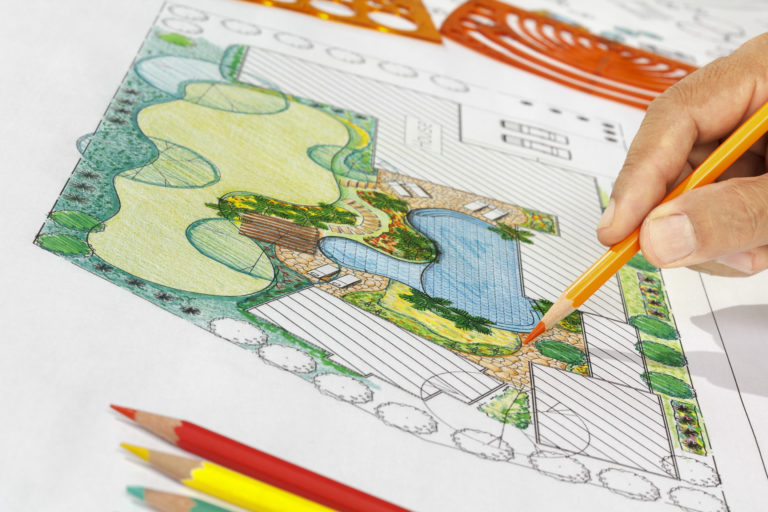How to Budget for Your Dream Swimming Pool
You’ve been dreaming about a backyard pool, haven’t you? But before you dive in, it’s crucial to understand the costs involved.
This article will guide you through budgeting for your dream swimming pool. We’ll explore different types, their associated costs, plus maintenance expenses and financing options.
Let’s get started on making that dream a reality without sinking your budget!
Understanding the Cost Factors of Swimming Pools
You’ve got to understand that the cost of your dream swimming pool isn’t just about the initial price; it’s about several factors like its size, materials, and maintenance.
Firstly, consider Pool Insurance Costs. This is an essential part of owning a pool but often overlooked in budgeting. The increase in your homeowner’s insurance due to having a pool can be substantial, depending on the insurer and your location. You have to account for this as it will recur annually.

Safety Equipment Expenses are another vital aspect you can’t ignore when calculating costs. Installing gates or fences around your pool is crucial to ensure safety, especially if you have kids or pets at home. Besides these precautionary measures, you’ll need life-saving equipment like rescue hooks and rings on standby.
Lastly, consider expenses for maintaining cleanliness and optimal water chemistry levels which involve regular testing and treatment supplies.
So don’t overlook these significant aspects while planning your budget because they contribute significantly towards the total cost of owning a swimming pool over time. It’s not just about diving into clear blue waters; it’s also about ensuring safety and upkeep for years to come!
Setting Your Pool Budget: Key Considerations
Don’t forget, it’s crucial to take into account several key factors when determining how much you’re willing to spend on your dream swimming pool. You shouldn’t only consider the initial costs but also potential future expenses.
Here are four considerations:
1. Inflation Impact: This refers to the general increase in prices over time. What might seem affordable now may not be in a few years due to inflation.
2. Maintenance Costs: Pools require regular cleaning, chemical balancing, and sometimes repair work; these can add up over time.
3. Utility Bills: Running a pool pump, heating the water, and lighting up your new oasis will impact your electricity bill.
4. Future Resale Value: A well-maintained pool could potentially increase your home’s resale value.
Types of Swimming Pools and Their Costs
It’s crucial to understand that there are various types of pools and each comes with its own cost implications. You’ve got above-ground, in-ground, infinity, and plunge pools among others. Each type has a price range dictated by factors like size, materials used, location, and whether it’s heated or not.
Here’s a simple breakdown:
| Type of Pool | Average Cost | Additional Expenses |
| Above-Ground | $1,500 – $6,000 | Pool safety expenses such as fencing |
| In-Ground (Vinyl) | $25k – $45k | Swimming pool insurance costs |
| In-Ground (Concrete) | $35k – $65k | Heating and maintenance costs |
| Infinity Pool | Over $100k | Higher insurance premiums due to increased risks |
| Plunge Pool | Varies greatly depending on design complexity |
Bear in mind these are rough estimates. The actual cost can be lower or significantly higher depending on your specific requirements. So as you dream about your perfect swimming pool, remember to consider the financial commitment involved: initial installation costs plus any additional outlays for pool safety expenses and swimming pool insurance.
Cost-saving Strategies for Pool Construction
You’re probably thinking about how to save on your pool construction project. You’ve got options – from DIY pool building, which could significantly cut down labor costs, to choosing economical materials that are durable yet budget-friendly.
Plus, there’s the often overlooked strategy of off-season construction that can net you some serious savings with contractors looking for work during their slow periods.
DIY Pool Building
Building your own pool can significantly cut down on costs if you’re willing to put in the time and effort. It’s not just about digging a hole and filling it with water, though. You’ll need to consider pool aesthetics and safety measures.
1. Pool Aesthetics: Design is crucial for your DIY project. Choose a style that complements your home’s exterior, focusing on shape, color, and surrounding landscaping.
2. Safety Measures: Don’t neglect safety features like fencing or alarms; they’re legally required in many places.
3. Cost Management: Be sure to budget for materials, tools, and any potential mishaps.
You’ll feel an immense sense of accomplishment when you’re lounging in something built by your own hands. Plus, you’ll have saved yourself a tidy sum!
Choosing Economical Materials
You’ve explored the DIY approach, but let’s now dive into choosing economical materials for your dream pool.
Embracing recycled material usage is not only budget-friendly but also a meaningful step towards sustainability. You’d be surprised at how robust and durable these eco-friendly alternatives can be! From repurposed plastic to reclaimed wood, the possibilities are exciting.
Think about using crushed glass for filtering; it’s an affordable option that doesn’t compromise on performance. For decking, bamboo or composite materials offer sustainable choices without skimping on style or quality.
Your dream swimming pool doesn’t have to cost the earth – literally! With a little creativity and smart decision-making, you can build an oasis that’s light on your pocket and kind to our planet too.
Off-season Construction Savings
Choosing to construct during off-season can significantly cut costs, as it’s typically a less busy time for contractors and materials may be cheaper. Winter building is a smart move if you’re looking to save on your dream swimming pool project.
Many construction firms offer off-season discounts to keep their crews active throughout the year. You’ll find that winter building not only gives you a price advantage but also ensures better attention from contractors since they aren’t juggling multiple jobs.
Financing Options for Your Pool Project
You’ve got your pool design and budget all figured out, but now you’re wondering how to finance this dream project. Let’s dive into your options:
– Personal loans specifically for pools
– Leveraging home equity financing
– Using a credit card
Each of these choices has its own set of advantages and drawbacks that we’ll discuss to help you make an informed decision.

Personal Loans for Pools”
Considering personal loans for pools can be a viable option if you’re looking to finance your dream swimming pool. This strategy revolves around understanding loan repayment strategies and the impact of interest rates on your overall cost. Here are some key points:
1. Understand Your Repayment Schedule: It’s crucial to understand how often and how much you’ll need to pay back.
2. Interest Rate Impact: A higher interest rate means more money out of your pocket in the long run.
3. Additional Costs: Remember, it’s not just about repaying the loan; there might be additional costs such as maintenance or unexpected repairs.
4. Risk Assessment: Defaulting on loans can lead to serious consequences, so always ensure that you’re financially capable before committing.
Home Equity Financing”
In comparison to personal loans, home equity financing could be an alternative you’d want to explore when funding a project like this. By leveraging your home’s value, you can secure funds for that dream swimming pool. However, you must consider equity repayment strategies. It’s not just about getting the money; it’s also about how you’ll pay it back.
Your repayment plan should align with your financial capability and future plans. Short-term plans might mean higher monthly payments but less interest over time. Conversely, long-term ones lower your monthly dues but accumulate more interest.
Don’t forget the tax implications either! The interest on a home equity loan is often tax deductible if used for property improvements – bonus! But remember to consult a tax professional first to understand fully what this means for your situation.
Credit Card Considerations
While home equity financing is a viable option, let’s not overlook the potential role of credit cards in funding a project. You might be thinking about the benefits of reward programs, which can offer great deals like cashback or travel points. Every swipe can bring you closer to your dream vacation while you’re building your dream pool.
However, don’t forget the pitfalls of credit cards. High interest rates and hidden fees can quickly turn this convenient method into a financial burden. It’s easy to get caught up in spending without realizing how much debt you’re piling on. Always make sure to read the fine print and keep track of your spending.
Maintaining Your Pool: Unexpected Costs
You’ll need to factor in unexpected costs, like pool maintenance and repair, when budgeting for your dream swimming pool. Pool insurance is one of those hidden expenses you don’t think about until something goes wrong. It’s essential for covering potential damage and liability issues, so it’s worth factoring into your budget.
Water conservation also plays a role in pool maintenance cost. Pools can lose thousands of gallons each year due to evaporation and leaks, so investing in a good cover can help conserve water and save money over time.
Here’s an overview of some typical costs:
| Cost Item | Estimated Price | Description |
| :—: | :—: | :—: |
| Pool Insurance | $30-$50/month | Covers damages & liabilities |
| Water Bill Increase | $50-$150/month | Due to refilling after evaporation/leaks |
| Maintenance Supplies | $80-$100/month | Chemicals, cleaning tools etc. |
| Repairs | Varies | Depending on the severity of the issue |
Case Study: Real-life Pool Budgeting Scenarios
Having navigated the choppy waters of unexpected pool maintenance costs, it’s time to dive into our next topic – real-life pool budgeting scenarios. You’ll see how others have successfully managed their finances to afford their dream pool, and you’ll get some valuable insights into successful negotiation tactics and pool insurance.
First up, let’s talk about successful negotiation tactics. Don’t be afraid to haggle with your pool contractor. It’s okay to ask for discounts or better terms; after all, you’re making a significant investment! Do your research, know the market rates, and be prepared to walk away if the deal doesn’t feel right.
Now onto an often overlooked aspect of budgeting for a swimming pool – insurance. Pool insurance insights are crucial as typical home insurance may not cover all potential damages or accidents related to your new addition. Touch base with your insurer about adding a specific rider policy for your pool.

Frequently Asked Questions
What Are Some Common Design Features to Consider When Planning for a Dream Swimming Pool?
When planning your dream pool, consider features like pool lighting options for night swims and eco-friendly designs to save on energy. Don’t forget about waterfalls, slides or a hot tub for added luxury.
How Does the Location of My Home Affect the Construction of a Swimming Pool?
Your home’s location affects pool construction significantly. Climate considerations impact pool maintenance costs, with harsher climates needing more upkeep. Local regulations might also affect the design and placement of your swimming pool.
How Much Time Is Typically Needed for the Construction of a Swimming Pool?
Typically, pool construction takes about 8-12 weeks. However, factors like your material choices and ongoing pool maintenance needs can extend this timeframe. It’s important you’re prepared for potential delays in your project.
What Are the Safety Measures to Consider When Budgeting for a Swimming Pool?
When planning for pool safety, you’ll need to consider pool fencing options and insurance considerations. Fencing’s crucial to prevent accidents, while proper insurance offers financial protection against any unexpected incidents or damages.
Are There Any Legal or Permit-Related Costs Involved in Building a Swimming Pool?
Yes, there are legal and permit-related costs when building a pool. You’ll need to consider these alongside pool maintenance expenses and financing options. It’s crucial to factor these into your overall budget planning.








